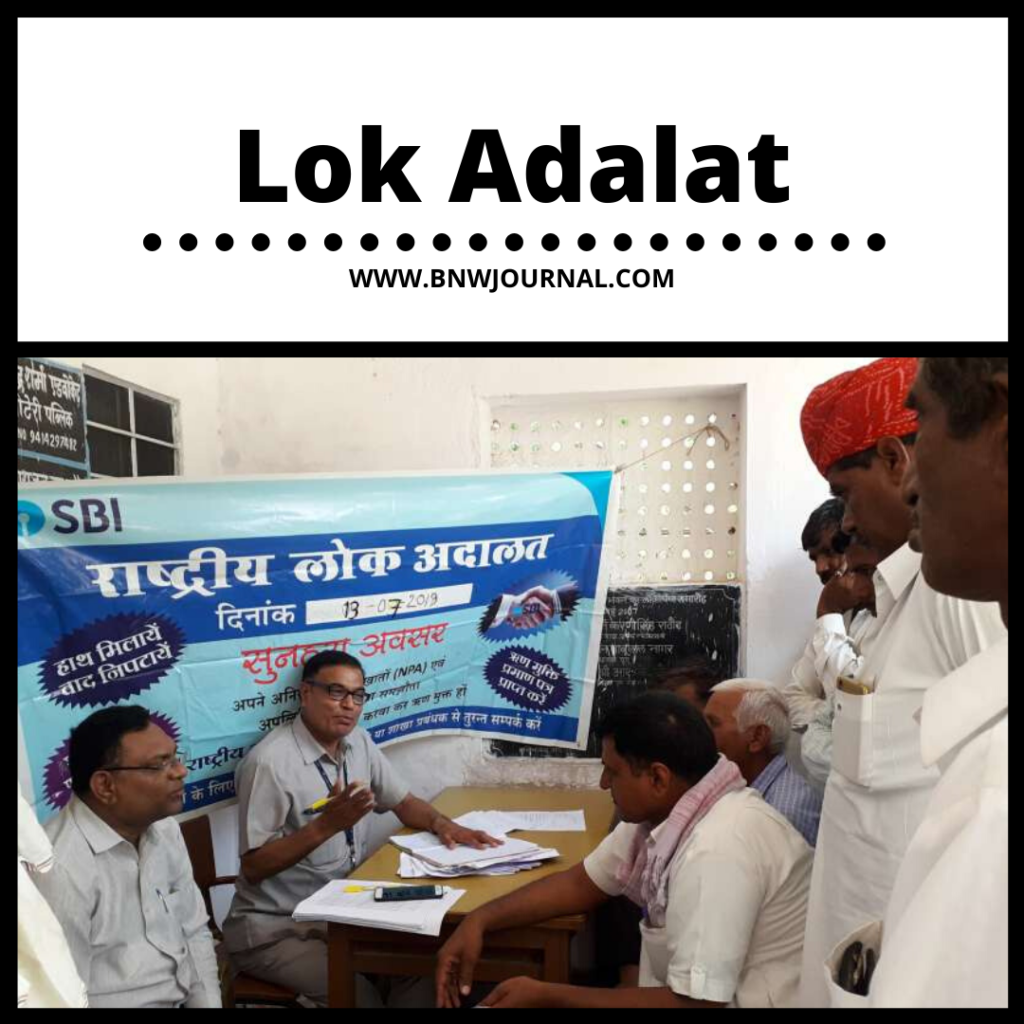![]()
Introduction
In India there has been an ever-rising number of pending cases. More cases are adding every day. What if someone needs to dispose of his case and no longer want to continue the case? What if there are a large number of people who want to dispose of the case? This will relieve the court and help in providing justice in a speedy manner to all. In India this speedy disposal of case is done through Lok Adalat.

History and Origin
The origin of Lok Adalat is from Article 39A of the constitution of India. The article provides the base to the origin of Lok Adalat. The article emphasized on providing justice and free legal aid. Lok Adalat is a dispute redressal mechanism that helped in solving three-fold problems that are disposing of cases that are on trial, disposing cases before trial, maintaining a cordial relationship between parties.
The first Lok Adalat was setup in Gujarat in the year 1982 in a district of Junagadh on March 14. Since then all other states have been increasingly organizing Lok Adalat. The success of Lok Adalat is express in the figures of 2019 where 7.51 pending cases dispose and 6.61 lakhs pre-litigation cases were dispose off. This shows that how Lok Adalat has helped reduce the pressure on the courts.
Powers
The cases which are dispose of in Lok Adalat are civil cases. So Lok Adalat has all powers that a civil court has. Section 89 of the Civil Procedure Code, 1908 provides for how the cases can be settled outside the court. Subclause 2 provides that a case can be settle in Lok Adalat outside the court. Lok Adalat draws its powers from the Legal Service Authority Act, 1987.
The jurisdiction of these Lok Adalats is parallel to the courts organizing them. Therefore it extends to any case or matter which is being take by that court under its original jurisdiction. Matters concerning offenses not compoundable under the law are an exception to this jurisdiction. They cannot be adjudicate in Lok Adalats. These courts may also take cognizance of cases as per provisions of the Act for disputes agree by the parties to be resolve under them or if one of the parties makes an application to the courts for referring the case to Lok Adalats for settlement and the court is prima facie satisfy that there are chances of settlement.
Advantage of settling the dispute in Lok Adalat
The reason for this increasing figure of cases settled in Lok Adalat is the various advantages it offers. Some of the advantages that are offered are:
- There is procedural flexibility as the Civil Procedure Code, 1908, and Evidence Act are not strictly followed. Moreover, parties can interact directly and arrive at a settlement which is beneficial for both which is not possible in regular court. This has attracted the attention of many people.
- There are no court fees applicable to matters filed and settled in Lok Adalat. If a pending case is decided in the Lok Adalat, the court fees paid on presenting suit is also refunded, thus providing economic justice to them who cannot afford filing suit.
- It has been viewed that after court proceedings, most of the time, relationships among the parties get spoiled. Relations are the most valuable thing in an individual’s life. This method helps in arriving at a settlement without affecting relations among the parties.
- The decision of Lok Adalat cannot be challenged before any court.
Thus, this method is speedy disposal of cases is gaining popularity.
Conclusion
The number of cases getting disposed off at Lok Adalat is ever increasing because of various advantages offered. The courts are also less burdened and the cost of litigation is also very low so everyone can get access to justice and thus this has added a new line to Indian Jurisprudence.



0 Comments